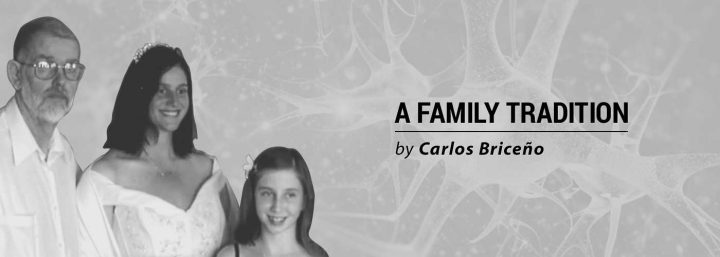Stress Can Accumulate for Caregivers, Posing Its Own Challenge

Have you ever been on a plane with a couple and their small child? You hope the child falls asleep or, at the very least, behaves. At some point during the flight, it’s not uncommon for children to whine and fidget, cry and hit the seat, or insist on getting up. Let’s say these actions happen frequently over the course of a two- to three-hour flight. This scenario becomes every passenger’s nightmare and tends to irritate everyone sitting near the family.
But now imagine the parents. They stress about the fact that their child is unhappy, uncomfortable, and possibly scared. They stress about the people around them. They are stressed because being a parent is just stressful to begin with. In general, no parent wishes for their child to upset a plane full of people.
If that parent stood up and started to yell at the child, the people on the plane would be astounded. It is not socially acceptable to lose your temper in public with the person you are taking care of, no matter what they are doing or how they are affecting those around them.
A few weeks ago, I wrote about a trip that Jill recently took. When she came home, she shared with me that a child had misbehaved on the plane. It made her think about how hard taking care of a loved one is on the caregiver. How hard it could eventually become for me.
Huntington’s disease affects the brain in different ways. As Jill’s father’s illness progressed, he became more demanding. He would get upset with people when things didn’t happen the way he wanted them to or if they took too long to do the things he asked. Jill was very patient with him, but it was exhausting for her and her mother.
She said that when she did get angry at him or yell, she would spend the rest of the day feeling guilty. She felt like she had done something wrong, even though she knew she hadn’t. She knew that she loved him, but losing it made her feel like she was not showing that love. She was wrong, obviously; she sees that now.
Jill said there will be days when she will be the most lucid person on earth — and days she will not be. That taking care of a person who isn’t always the person you fell in love with is hard. It is normal to be cranky about their behavior and the loss of who they were. She said that being upset and yelling can be a healthy way to express those feelings, and she said she hopes I do that rather than bottle up my emotions.
I don’t think that I will ever lose it on her, but if I do, I know she has already forgiven me.
***
Note: Huntington’s Disease News is strictly a news and information website about the disease. It does not provide medical advice, diagnosis, or treatment. This content is not intended to be a substitute for professional medical advice, diagnosis, or treatment. Always seek the advice of your physician or other qualified health provider with any questions you may have regarding a medical condition. Never disregard professional medical advice or delay in seeking it because of something you have read on this website. The opinions expressed in this column are not those of Huntington’s Disease News, or its parent company, Bionews Services, and are intended to spark discussion about issues pertaining to Huntington’s disease.







Leave a comment
Fill in the required fields to post. Your email address will not be published.